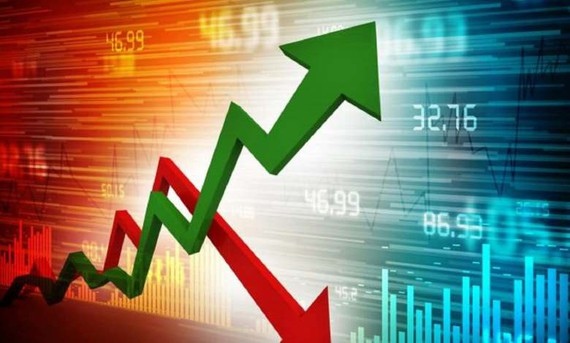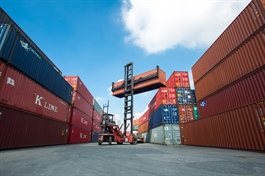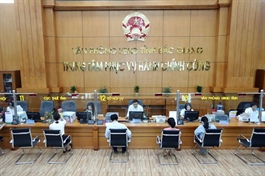Current global inflation a worrisome situation
Current global inflation a worrisome situation
The current rising inflation is creating a worrisome situation across the globe. As of now, the US has the highest inflation rate in 40 years, and inflation in many European and Asian countries is also the highest it has been in last three decades.
Illustrative photo. |
This skyrocketing inflation is not just because of the prolonged and virulent Covid-19 pandemic that caused disruption in global supply chains, but it is now being caused by the vicious Russia-Ukraine war. This conflict has upset the entire world economy and businesses have been left to face untold and unpredictable consequences, none of which will be easy on anyone.
Central banks in dilemma
Central banks around the world have had to raise interest rates to curb a growing inflation, or at least keep it in control with stimulus packages being pumped in. There are also expectations of higher interest rates in the near future like in the US, U.K., Canada, and Australia. According to data from the CME Group and the US Federal Reserve (FED), there is a 100% probability that interest rates will be raised in March, and there is more than a 60% probability that the FED will increase interest rates by six to seven times this year.
However, there are still many opinions that due to the Russia-Ukraine war the central banks will change their monetary policy, i.e. not increase interest rates anymore, or even return to loosening money to boost the economy, thereby boosting financial markets. This point of view explains the fact that during the 2008 financial crisis, the central banks also pumped money quickly and abundantly, and inflation barely reached the target for more than a decade afterwards. However, at that time, the FED mainly pumped money into the financial system, specifically banks, to solve bad loans. From 2020 until now, money has been injected directly into the economy and even delivered to consumers, which has strongly activated inflation.
Now central banks are stuck in a dilemma, because keeping interest rates low will help promote economic recovery, but then it will increase the risk of escalating commodity prices, thereby causing inflation. Tightening policies can help quell inflation by restraining demand, but demand for goods also declines when economic stimulus packages lose their effect, especially in the ongoing Covid-19 pandemic situation which has not yet ended entirely.
Currently, the rising commodity prices show no sign of stopping, with oil prices surpassing the USD 100 per barrel mark, and the Russia-Ukraine war likely to continue to push prices higher in the near future, which will put more pressure on inflation. When other energy sources such as coal prices doubled in early March, at one point this price increased by nearly 50% in just one day. It should be noted that energy prices are always a huge input cost of businesses, thereby continuing to weigh on production and business costs and other goods, leading to even worse inflation.
Therefore, even if the war is over in the near future, the inevitable consequences of its devastation will affect the economy for very many years to come. To mitigate this effect for the long term, central banks around the world are racing to increase interest rates as well as tighten monetary policy.
Inflation target
Inflation is often mentioned with a negative connotation, especially at the present sensitive time, and some people are even obsessed with it. However, inflation is an important part of economic growth and it is especially good when inflation is around the target level. Normally, the target inflation rate is set by the National Assembly of each country at the beginning of the year. Currently, the inflation targets of both U.K. and the US have been set at around 2%.
Target inflation is calculated based on the price increase that is moderate enough for businesses and manufacturers to sell the same quantity of goods but achieve a higher income than before. This will stimulate them to continue doing business, innovate, and offer better products and services. This calculation also includes the consumer income rising proportionally or exceedingly so that they won't see inflation as a problem. Things only get complicated when incomes can't grow, and inflation is too far off target.
When inflation shows signs of getting out of control, central banks and governments are forced to act by tightening monetary and fiscal policies, including increasing interest rates. As rising interest rates help keep inflation under control while the economy still maintains a stable growth rate, everything is still good and the financial market is still supported. On the contrary, if inflation is out of control, the economy will deviate from the trajectory.
Cautious investment
Typically, businesses and consumers are most directly affected by inflation, as their input costs not only increase but also increase too rapidly. In addition, the increase in borrowing costs will easily make bad debts also increase and people have to limit the use of leverage, thereby reducing cash flow to the economy and financial markets. Inflation clearly has a negative impact on income as people are forced to save more and spend less. This makes it very difficult for business sales and wages to increase.
The biggest thing about the stock market, real estate and digital assets is that many investors who make money from these think it's very easy. In such a situation, cash flow is often withdrawn from risk groups such as securities and real estate, and shifted to traditional safer channels such as gold, bonds, insurance, and savings. In particular, gold benefits greatly when there is instability and high inflation. The proof is that in the first three months of this year, gold was the best growth channel and could increase even higher in the coming year. Many expect the price to surpass the historic peak of USD 2,075 per oz. this year, so gold is a potential investment in 2022.
However, gold will face a disadvantage when the economy becomes stable again and risk channels such as real estate and securities are rallied and inflation is well in control. Therefore, every investor should only hold a certain percentage of gold in the business portfolio in case the economy becomes unstable, as inflation is often accompanied by high-interest rates.





















